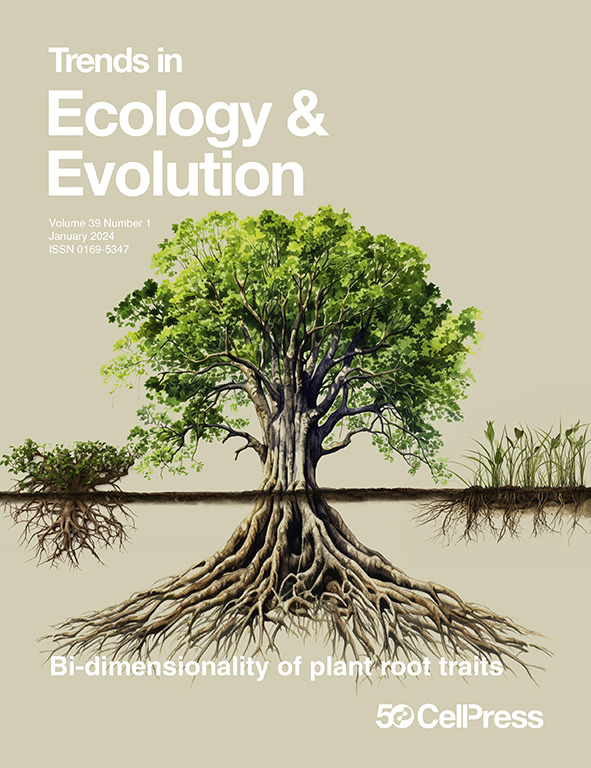保护农业生物多样性可实现可持续和公平的土地节约。
IF 17.3
1区 生物学
Q1 ECOLOGY
Trends in ecology & evolution
Pub Date : 2024-10-01
Epub Date: 2024-09-04
DOI:10.1016/j.tree.2024.08.009
引用次数: 0
摘要
加强农业生产,把土地留给自然,有助于实现粮食安全和生物多样性保护这两个相互竞争的目标。然而,这种方法忽视并低估了目前由数百万小农维护的农业生物多样性。要使集约化可持续发展,并公平地实现土地节约,我们必须保护高生物多样性景观。本文章由计算机程序翻译,如有差异,请以英文原文为准。
Agrobiodiversity conservation enables sustainable and equitable land sparing.
Intensifying agriculture to spare land for nature could help meet competing food security and biodiversity conservation goals. However, this approach neglects and undervalues agrobiodiversity, currently maintained by millions of smallholder farmers. For intensification to be sustainable and land sparing to be achieved equitably, we must conserve high-agrobiodiversity landscapes.
求助全文
通过发布文献求助,成功后即可免费获取论文全文。
去求助
来源期刊

Trends in ecology & evolution
生物-进化生物学
CiteScore
26.50
自引率
3.00%
发文量
178
审稿时长
6-12 weeks
期刊介绍:
Trends in Ecology & Evolution (TREE) is a comprehensive journal featuring polished, concise, and readable reviews, opinions, and letters in all areas of ecology and evolutionary science. Catering to researchers, lecturers, teachers, field workers, and students, it serves as a valuable source of information. The journal keeps scientists informed about new developments and ideas across the spectrum of ecology and evolutionary biology, spanning from pure to applied and molecular to global perspectives. In the face of global environmental change, Trends in Ecology & Evolution plays a crucial role in covering all significant issues concerning organisms and their environments, making it a major forum for life scientists.
 求助内容:
求助内容: 应助结果提醒方式:
应助结果提醒方式:


